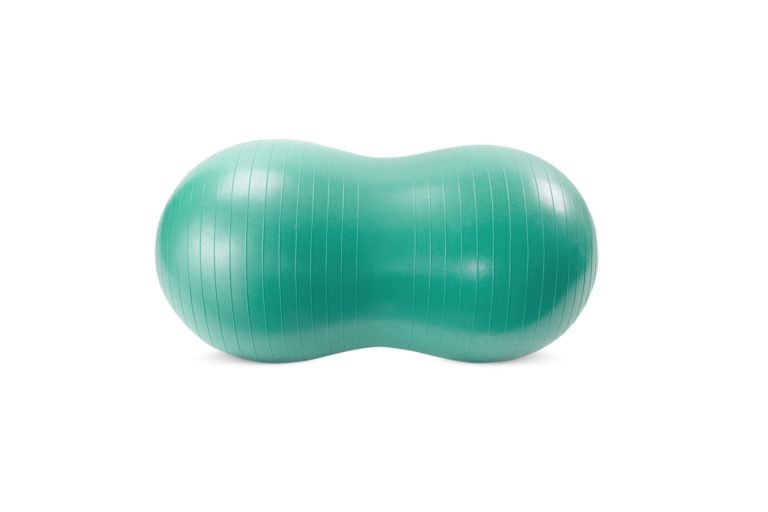Who would have ever imagined a large exercise-like ball shaped like a peanut would become an essential tool in helping your labor progress? If you are preparing for labor with an exercise ball at home, you won’t be surprised if and when your nurse brings a peanut ball to support position changes during labor—even while remaining in bed. Peanut balls are latex-free inflatable devices shaped like a peanut—broader on each end, and narrower in the middle. Like exercise balls, only shaped differently, they come in four different sizes, from 40 cm to 70 cm. Nurses love peanut balls because they help laboring women change while in a labor bed. Early research suggests that they may help keep labor progressing.
Changing positions in labor encourages baby to descend into the birth canal, and reduces your risk for cesarean birth. Some birthing persons who use these balls say they helped them have a better overall birth experience.
Keep That Pelvis Active
Using an epidural during labor? No problem—the peanut ball will support position changes so as not to slow your labor. Ask your nurses to help you with the support of a peanut ball in changing positions throughout labor, depending on how far along your cervix is dilated. Some positions include leaning forward, side lying and the tuck. Peanut balls also help you push more effectively on your side, which helps to reduce your risks of injury to the nerves, supporting your hips and knees (lower extremities). Such injuries are possible when you lay on your back for hours without a position change.
Using a Peanut Ball
Peanut Balls are typically used two ways primarily to help you change your positions in labor. For example, you may sit in bed in a semi-reclined position with one leg over the ball
and the other leg out to your side. The peanut ball also supports side-lying position with your upper leg over the ball, which helps open your pelvis.
YOU MAY ALSO LIKE: Prevent Lower Extremity Nerve During Childbirth
By Lakisa Ballard, C-EFM, RNC-OB, is a Labor and Delivery Clinical Nurse Educator at Holy Cross Hospital in Maryland. She has worked in many high-risk facilities around the country, and has a passion for educating our future nurses in obstetrics. She is a researcher, highly adaptable in every changing situation, and an advocate for innovation that helps to improve patient outcomes. Lakisa’s diverse clinical background has contributed to her holistic approach to patient care and versatile teaching methods.






Comments are closed.